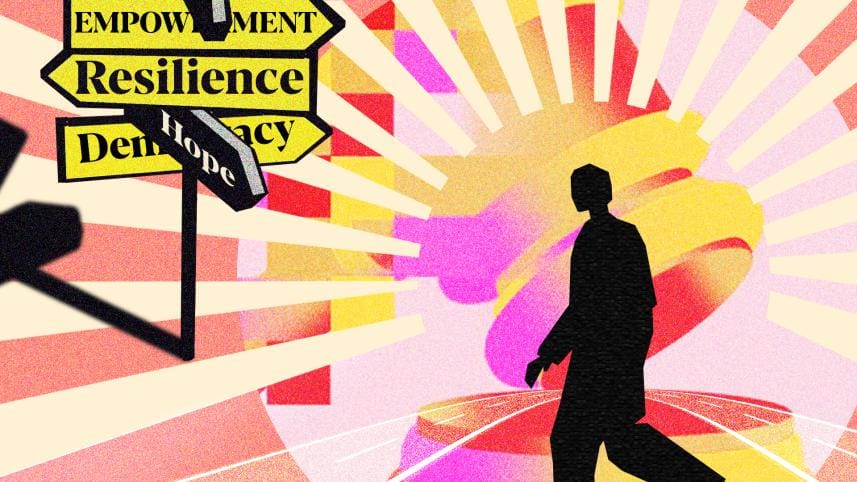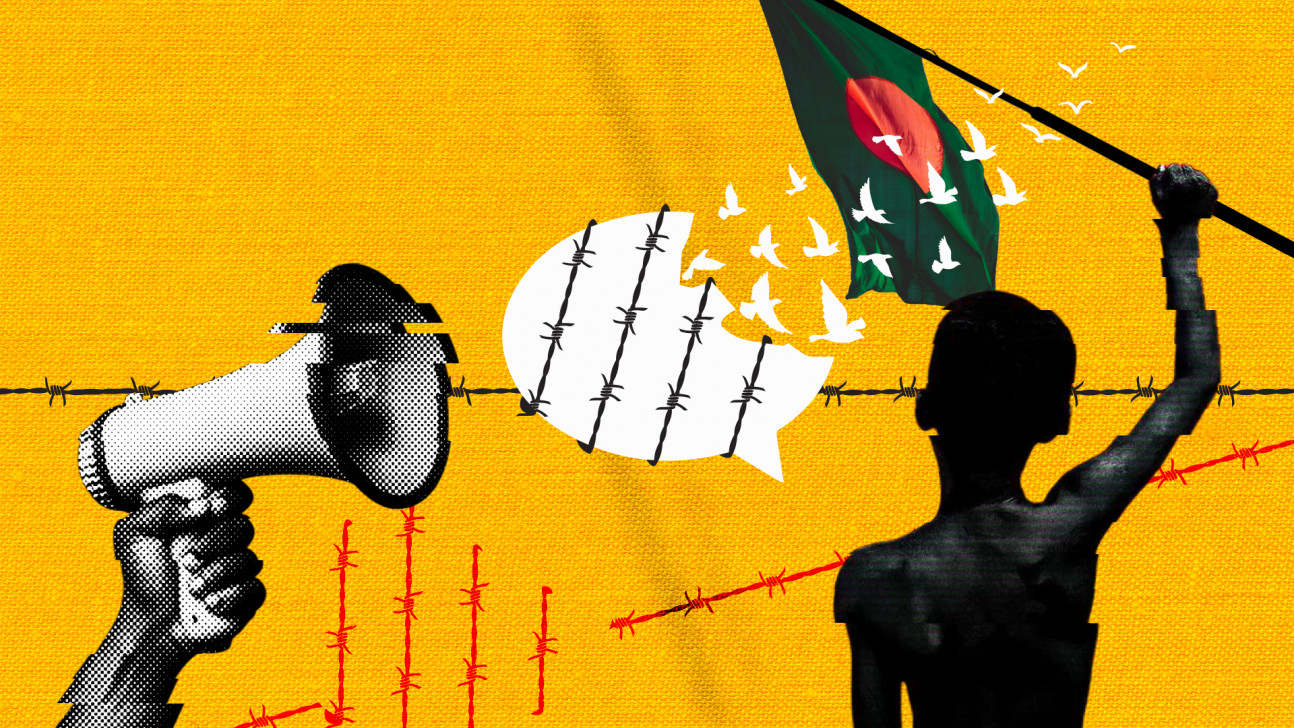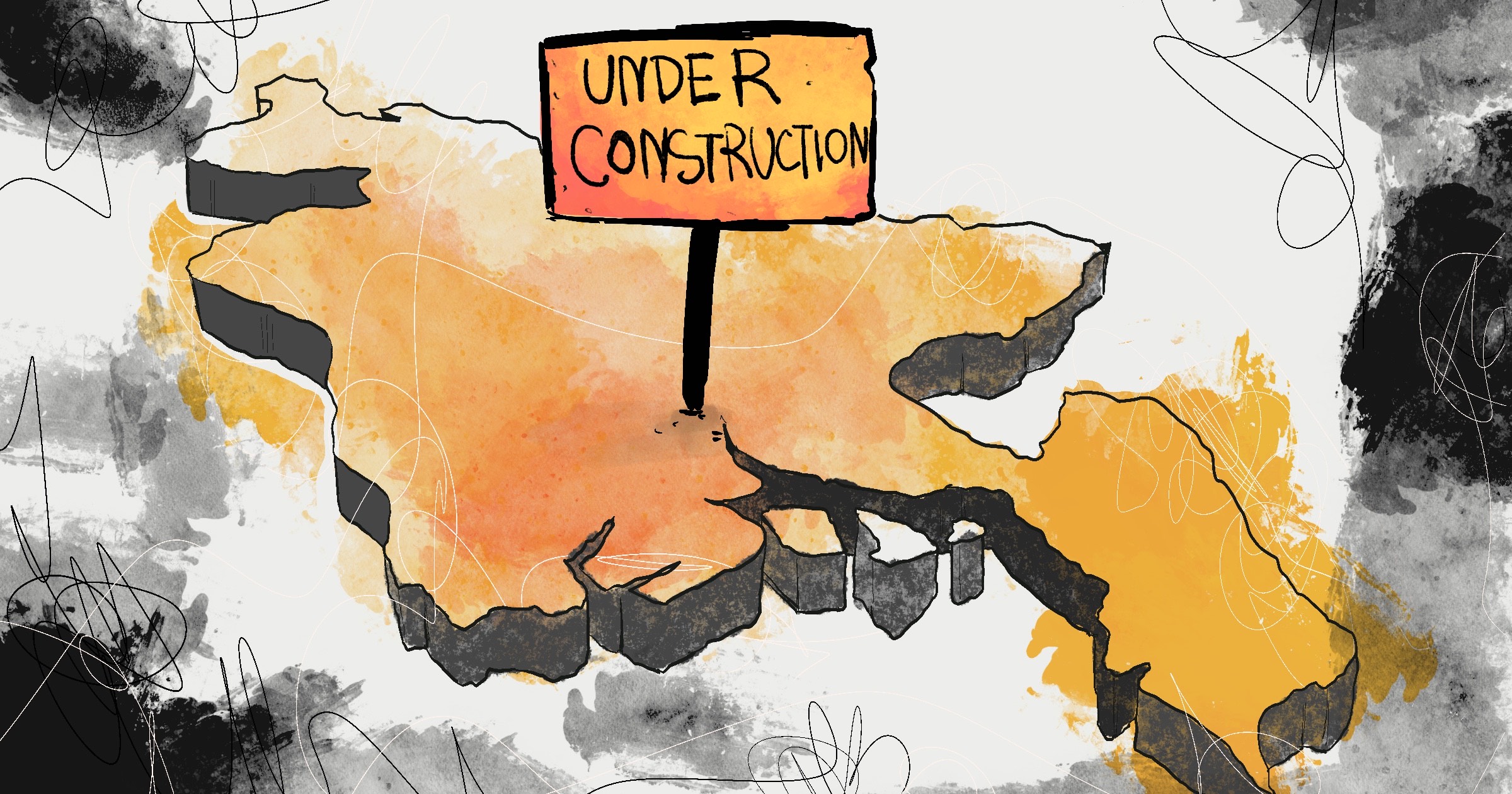Removing roadblocks to economic and democratic recovery

As one of the toughest nations on this planet, we Bangladeshis, have been able to overcome natural disasters, calamitous weather, political upheavals, and dictatorial regimes. The July-August mass uprising revealed the inner strengths of the people, particularly the younger generation, to tackle powerful and evil forces and to find an alternative roadway into the future. The path forward for us is undoubtedly full of uncertainties but also offers a rainbow of opportunities.
The interim government currently has many complex and deep-rooted political and socio-economic problems on its docket, which it has promised to address, and I often wonder how they will be able to do so within the time frame they have at their disposal. While I am for free, fair, and inclusive elections soon, I am also aware that the interim government is our best hope to: i) identify the critical problems, ii) chalk out alternative ways to resolve them, and iii) address some of the urgent issues. But they need a little more time than what the newspapers and some politicians are talking about.
Unfortunately, dark forces are already waiting in the wings and will try to strike at any moment to derail our march to true democracy. The roadblocks are political, global, and administrative. The immediate priorities are to stabilise the economy, confront the profit-seekers and tackle inflation and external debt.
TIME magazine on October 3, 2024, published an article "How Bangladesh's Ousted Leader Sheikh Hasina Could Stage an Unlikely Comeback," written by Charlie Campbell, a senior correspondent based in the Singapore bureau of TIME, and the former China Bureau Chief. The narrative of the article is full of speculative and biased conjectures. I only read it because of the eyebrow-raising title and the fear it was bound to arouse. My biggest concern is that he raises the possibility of the revolution floundering because of the hypothetical picture of gloom and doom the writeup portrayed.
Campbell mentions that the Asian Development Bank lowered its forecast for Bangladesh's economic growth from 6.6 to 5.1 percent due to the political tumult. The economic slowdown has been acknowledged by Prof Wahiduddin Mahmud, the adviser for planning and education in the interim government. However, GDP growth may well dip due to many factors. Given that we might have a new election within the next two years, the political parties might try to take advantage of any possible bump on the road ahead. However, Bangladeshi voters are aware of the factors behind the economic slowdown and will not blame the interim government and look back at the former regime with any feelings of nostalgia.
First of all, the former government left a lot of debris in its wake that needs to be cleaned up. For example, during the uprising in July and August, the former government brutally tried to repress the movement leading to death and destruction. Secondly, the leaders of the July uprising are justifiably seeking a major course correction, which will require various government departments to reallocate their budgets. Thirdly, factories were shut down, some businesses experienced a considerable loss of production, and exports suffered. In addition, consumer expenditure and investment in the public and private sectors dipped, and a major overhaul of the financial infrastructure is underway. Finally, there are genuine external shocks such as recent flooding, an increase in energy prices in the international market, and depreciation of the Taka. Therefore, the impact of these factors will not affect the popularity of the Yunus administration.
However, all said and done, the country might still expect the interim government to deliver on a few major promises including curbing corruption, banking reforms, and restoration of democracy. A relatively more open society with less repression of dissenting voices and comparatively more freedom of expression are already seen as major accomplishments of the new administration. Besides, the adviser for planning after the ECNEC meeting on October 7 informed us of the approval of some much-needed projects, and enhanced monitoring and evaluation of ongoing projects and cost of infrastructure projects.
However, other areas need some attention even within the short timeframe, the interim government might have. These are the external debt crisis, inflation, and the near-collapse of the banking sector. "The interim government in Dhaka has work to do to reassure investors and creditors that it can guarantee the political stability conducive to economic repair work," according to a statement by East Asia Forum (EAF), based at the Australian National University.
Poor people will bear the brunt of these dislocations because of low employment, lack of overseas money, and the low government handouts they receive. Therefore, spending on safety nets, health, and education must be carefully prioritised and targeted to the most vulnerable.
The International Money Fund (IMF) is holding out an olive branch. Kristalina Georgieva, managing director of the IMF, called on the G-20 countries to offer debt relief for indebted vulnerable countries through the Common Framework for debt treatments, adding that timely and orderly debt resolution is in the interest of both debtors and creditors.
The institutions working for good governance and sustained economic growth both in the private and public sectors need to be strengthened and allowed to work independently without any fear of retribution. For example, the dormant Bangladesh Financial Intelligence Unit was reactivated and it froze the bank accounts of some "bad actors" amid allegations of corruption, asset accumulation, and money laundering against them. Other such institutions that can help in the aforementioned areas are the Anti-Corruption Commission, Transparency International, and Grameen Bank.
The present macroeconomic crisis will be painful to resolve, but Bangladesh has the leadership, the institutions, and the support of the masses to bring some resolution before the next elections.
Dr Abdullah Shibli is an economist and works for Change Healthcare, Inc., an information technology company. He also serves as senior research fellow at the US-based International Sustainable Development Institute (ISDI).
Views expressed in this article are the author's own.
Follow The Daily Star Opinion on Facebook for the latest opinions, commentaries and analyses by experts and professionals. To contribute your article or letter to The Daily Star Opinion, see our guidelines for submission.




 For all latest news, follow The Daily Star's Google News channel.
For all latest news, follow The Daily Star's Google News channel. 


Comments